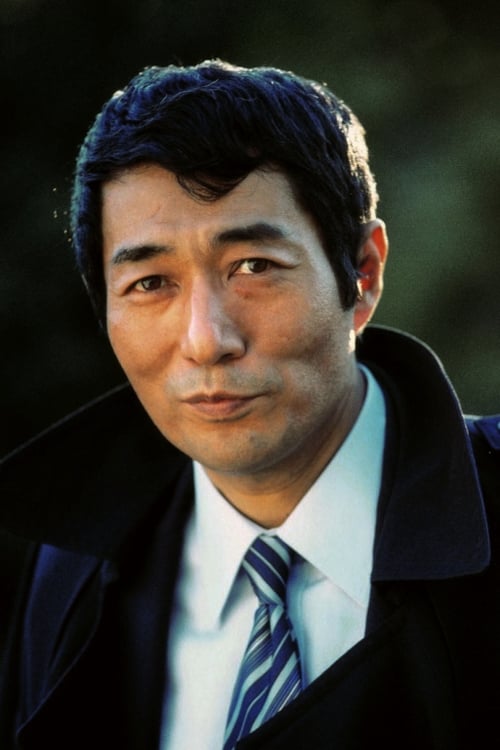
Shūji Terayama
Рождение : 1935-12-10, Aomori, Japan
Смерть : 1983-05-04
История
From Wikipedia, the free encyclopedia.
Shūji Terayama (December 10, 1935 – May 4, 1983) was an avant-garde Japanese poet, dramatist, writer, film director, and photographer. According to many critics and supporters, he was one of the most productive and provocative creative artists to come out of Japan. He was born December 10, 1935, the only son of Hachiro and Hatsu Terayama in Hirosaki city in the northern Japanese prefecture of Aomori. His father died at the end of Pacific War in Indonesia in September 1945. At the age of nine, his mother moved to Kyūshū to work at an American military base while he himself went to live with relatives in the city of Misawa, also in Aomori. At this same time, Terayama lived through the Aomori air raids that killed more than 30,000 people.
Terayama entered Aomori Prefectural Aomori High School in 1951, and in 1954 went to prestigious Waseda University's Faculty of Education to study Japanese language and literature. However, he soon dropped out because he fell ill with nephrotic syndrome. He received his education through working in bars in Shinjuku. His oeuvre includes a number of essays claiming that more can be learned about life through boxing and horse racing than by attending school and studying hard. Accordingly, he was one of the central figures of the "runaway" movement in Japan in the late 1960s, as depicted in his book, play, and film "Throw Away Your Books, Run into the Streets!
In 1967, Terayama formed the Tenjō Sajiki theater troupe, whose name comes from the Japanese translation of the 1945 Marcel Carné film "Les Enfants du Paradis", so can be translated as "children of heaven", however its correct translation is "Ceiling Gallery" and has a meaning similar to the English expression "Peanut Gallery". The troupe was dedicated to the avant-garde and staged a number of controversial plays tackling social issues from an iconoclastic perspective. Some major plays include "Bluebeard", "Yes", and "The Crime of Fatso Oyama", among others. Also involved with the theater were artists Aquirax Uno and Tadanori Yokoo, who designed many of the advertisement posters for the group. Musically, he worked closely with experimental composer J.A. Seazer and folk musician Kan Mikami.
He was also involved in poetry and at 18 was the second winner of the Tanka Studies Award.
Terayama experimented with ‘city plays’, a fantastical satire of civic life.
Also in 1967, Terayama started an experimental cinema and gallery called 'Universal Gravitation,' which is in fact still in existence at Misawa as a resource center. The Terayama Shūji Memorial Hall, which has a large collection of his plays, novels, poetry, photography and a great number of his personal effects and relics from his theatre productions, can also be found in Misawa. In 1976, he was a member of the jury at the 26th Berlin International Film Festival.
Terayama published almost 200 literary works, and over 20 short and full-length films.
He was married to Tenjō Sajiki co-founder Kyōko Kujō, but they later divorced, although they continued to work together until Terayama's death on May 4, 1983 from cirrhosis of the liver.
Description above from the Wikipedia article Shūji Terayama, licensed under CC-BY-SA, full list of contributors on Wikipedia
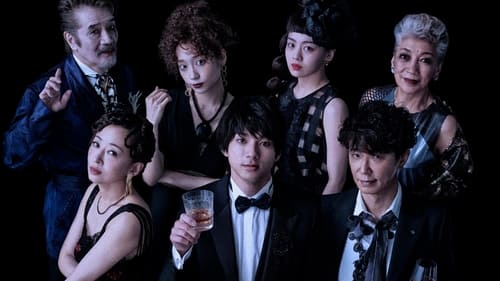
Creator

Himself (archive footage)
The documentary to find the "true Shuji Terayama".
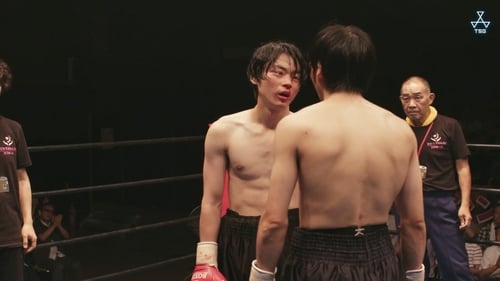
Novel
Set in the near future around Shinjuku, Tokyo. Shinji got out from a youth detention center. Barikan suffers from stuttering and extreme shyness. These two men meet in a boxing gym. Shinji and Barikan become friends and pursue boxing under a hopeless situation.
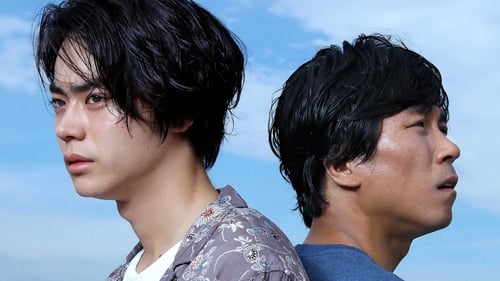
Novel
Set in the near future around Shinjuku, Tokyo. Shinji got out from a youth detention center. Barikan suffers from stuttering and extreme shyness. These two men meet in a boxing gym. Shinji and Barikan become friends and pursue boxing under a hopeless situation.
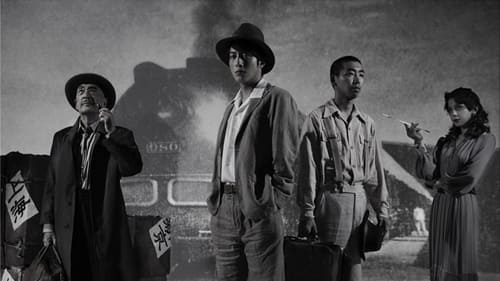
Writer
Yukichi Matsumoto's 2013 stage adaptation of Shuji Terayama's "Lemmings". Two cooks share a room, one of which talks with his mother's head: it lives beneath their tatami mats. On the other side of their room's wall, lives a wife who desperately cares for her feverish husband. As more and more walls are tore down movie studios, hospitals and prisons are revealed, destroying the physical boundaries between their boarding house and the city.

Original Story
He pulls out a pair of scissors that tends toward the sky. So begins his journey through time, space and memory. Seasons change, years pass. Wrapped in a mysterious box of sunset, the boy grows older, becomes adolescent, young man, adult, old, but - strangely - the memories are beginning to lead their own lives. "What memory, what reverie, what is real and what is imaginary? I do not know ... "

Director
This four-volume boxset released by Image Forum compiles the breadth of Shuji Terayama's experimental short film work into an extensive DVD collection. Originally released by Image Forum on VHS in 1995, this upgraded DVD boxset stands as the definitive collection for Terayama's experimental work in the highest quality possible.
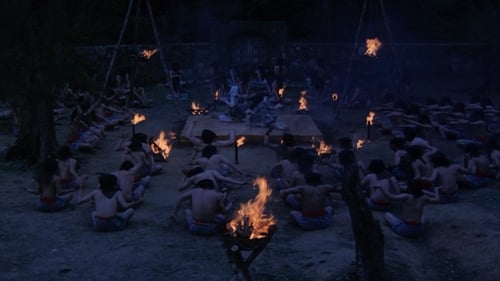
Screenplay
В небольшой японской деревушке влюбленные поженились, несмотря на существующие предрассудки о тех, кто вступает в брак, являясь родственниками. По легенде у таких людей может родиться ребенок с хвостом. С этих странных событий и начинается невероятная история…

Director
В небольшой японской деревушке влюбленные поженились, несмотря на существующие предрассудки о тех, кто вступает в брак, являясь родственниками. По легенде у таких людей может родиться ребенок с хвостом. С этих странных событий и начинается невероятная история…

Writer
Lacking a coherent plot, We're All Riding on a Circus Elephant depicts the collapse of western civilization as a free-form collage advocating group anarchy and actor improvisation. The stage is a boxing ring. Those actors who are "onstage" get into the boxing ring and assault each other with words. Others heckle and cheer at the sidelines, or act as a rhythm-and-blues chorus while changing costumes or wigs. Taking as its coda Andy Warhol's dictum that everyone gets fifteen minutes of fame, actor transformations depict the Breakdown of Japanese values and selfhood due to an obsession with popular American culture.

Editor
This remarkable compilation follows an exchange of video letters that took place between Shuji Terayama and Shuntaro Tanikawa in the months immediately preceding Terayama's death. It can be thought of as a home video produced by two preeminent poets and inter-laid with highly abstract philosophizing, slightly aberrant behavior and occasionally flamboyant visuals.

Cinematography
This remarkable compilation follows an exchange of video letters that took place between Shuji Terayama and Shuntaro Tanikawa in the months immediately preceding Terayama's death. It can be thought of as a home video produced by two preeminent poets and inter-laid with highly abstract philosophizing, slightly aberrant behavior and occasionally flamboyant visuals.

Writer
This is Shuji Terayama memorial performance of The Hunchback of Aomori from 1983 (featuring Akihiro Miwa). Terayama gathered dwarfs, circus freaks, itinerant magicians, acrobats and untrained youth for his burgeoning troupe, Tenjo Sajiki. The troupe's premiere offering, written and directed by Terayama, was Aomori-ken no Semushi Otoko (The Hunchback of Aomori, 1967).

Writer
"La Marie-Vison" tells the perversely fascinating tale of Marie, a transvestite prostitute who lives in elegant squalor with her dedicated servant. Every day, for eighteen years, Marie releases an exotic butterfly into the open fields of the living room. Every day for eighteen years the beautiful boy, imprisoned in her den, catches and kills it. The beautiful boy is tempted with visions of the outside world, free from the wiles of wicked Marie, but maybe the boy wasn't made for the outside world. Maybe none of us were.

Writer
This is Shuji Terayama memorial performance from 1983.

Writer
This remarkable compilation follows an exchange of video letters that took place between Shuji Terayama and Shuntaro Tanikawa in the months immediately preceding Terayama's death. It can be thought of as a home video produced by two preeminent poets and inter-laid with highly abstract philosophizing, slightly aberrant behavior and occasionally flamboyant visuals.

Director
This remarkable compilation follows an exchange of video letters that took place between Shuji Terayama and Shuntaro Tanikawa in the months immediately preceding Terayama's death. It can be thought of as a home video produced by two preeminent poets and inter-laid with highly abstract philosophizing, slightly aberrant behavior and occasionally flamboyant visuals.

Self
This remarkable compilation follows an exchange of video letters that took place between Shuji Terayama and Shuntaro Tanikawa in the months immediately preceding Terayama's death. It can be thought of as a home video produced by two preeminent poets and inter-laid with highly abstract philosophizing, slightly aberrant behavior and occasionally flamboyant visuals.

Director
This is Shuji Terayama memorial performance from 1983.
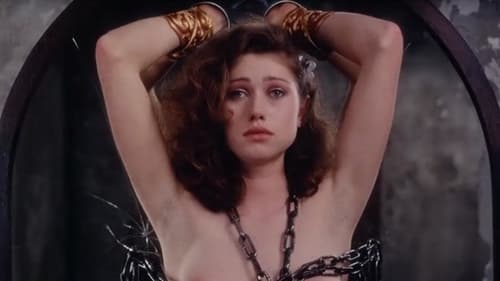
Writer
A girl named O loves a rich, and much older man. She is subjected to a variety of humiliating experiences to prove her unconditional obedience to him in a chinese brothel. A poor boy sees her and falls in love with her. To get the money needed to sleep with her, he takes part in rebellious acts.

Director
A girl named O loves a rich, and much older man. She is subjected to a variety of humiliating experiences to prove her unconditional obedience to him in a chinese brothel. A poor boy sees her and falls in love with her. To get the money needed to sleep with her, he takes part in rebellious acts.

Director
This sumptuous-yet-austere liberal re-working of Cien años de soledad by Gabriel García Márquez, arranged on a five-part stage surrounded by the audience, was historically the latest production of Tenjo Sajiki.
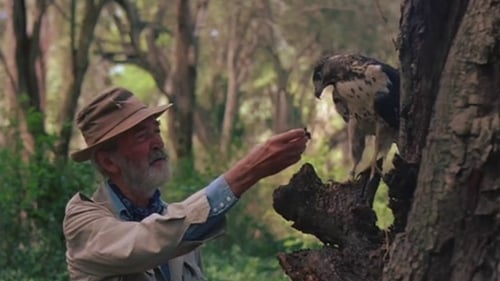
Writer
A pilot crash-lands in the African wilds, and loses his memory. He finds an old man living in the jungle with his grand-daughter. He falls in love with the young girl and settles down happily with them; their idyllic life broken only by a visit from his long forgotten fiancee.

Screenplay
Three stories. A solitary sailor falls from his boat and washes ashore on a tropical island. While seeking rescue, he's found by a nearly naked woman who is playful and compliant. He decides to erase his signs of distress and remain on the island. What awaits? In the second, an adolescent searches for the words of a nursery rime he remembers bits of. His journey takes him into dreams, sexual awakening, and Oedipal fantasy. Third, a man of wealth in late-nineteenth century Paris hires a prostitute for the night. She's also cabaret performer and takes him to her room. He fears he's about to be robbed. What's her secret?

Director
Three stories. A solitary sailor falls from his boat and washes ashore on a tropical island. While seeking rescue, he's found by a nearly naked woman who is playful and compliant. He decides to erase his signs of distress and remain on the island. What awaits? In the second, an adolescent searches for the words of a nursery rime he remembers bits of. His journey takes him into dreams, sexual awakening, and Oedipal fantasy. Third, a man of wealth in late-nineteenth century Paris hires a prostitute for the night. She's also cabaret performer and takes him to her room. He fears he's about to be robbed. What's her secret?

Writer
Akira is haunted by a "bouncing ball" song that he remembers his mother singing when he was a small child, and now on the verge of a sexually active adulthood, he wants to find the origins of the song. The young man ostensibly wanders into a time-warp in which aspects from his childhood and adulthood mix together. In this never-never land he comes across a beautiful woman/witch who is lost inside the labyrinth of her mansion, just as the young man is lost in the labyrinth of time — and on some levels, perhaps the labyrinth of his subconscious.

Director
Akira is haunted by a "bouncing ball" song that he remembers his mother singing when he was a small child, and now on the verge of a sexually active adulthood, he wants to find the origins of the song. The young man ostensibly wanders into a time-warp in which aspects from his childhood and adulthood mix together. In this never-never land he comes across a beautiful woman/witch who is lost inside the labyrinth of her mansion, just as the young man is lost in the labyrinth of time — and on some levels, perhaps the labyrinth of his subconscious.
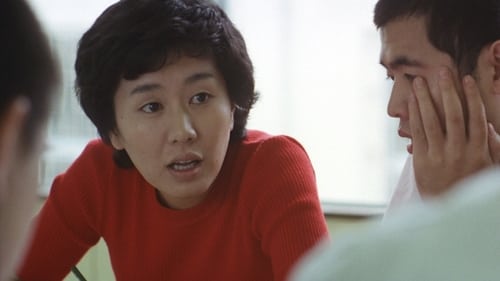
Writer
Third and Shinbunbu embark on a plan to make money by Third becoming a pimp and Shinbunbu a prostitute.

Writer
Stage performance by the Tenjo Sajiki troupe.

Writer
Shuji Terayama and J.A.Seazer's phantasmagoric folk-psych-symph-prog-rock opera. Historical Tenjo Sajiki performance from 1978.

Director
Shuji Terayama and J.A.Seazer's phantasmagoric folk-psych-symph-prog-rock opera. Historical Tenjo Sajiki performance from 1978.

Director
Stage performance by the Tenjo Sajiki troupe.
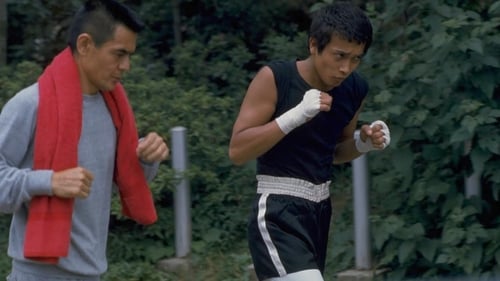
Screenplay
In the midst of a match, a successful boxer - Hayato, has had enough of the sport. He lets himself get knocked, quits boxing, leaving his wife and start living alone with his mangy dog. One day a young mediocre boxer knocks at the door and wants to be Hayatos apprentice.

Director
In the midst of a match, a successful boxer - Hayato, has had enough of the sport. He lets himself get knocked, quits boxing, leaving his wife and start living alone with his mangy dog. One day a young mediocre boxer knocks at the door and wants to be Hayatos apprentice.

himself
1977 short featuring Shuji Terayama
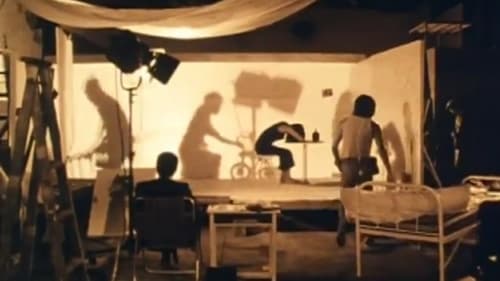
Screenplay
As a family goes on with their day, the shadows on their walls lead a completely different life.

Director
As a family goes on with their day, the shadows on their walls lead a completely different life.

Screenplay
Visions of characters by the seaside from one's memory are erased by the filmmaker's hand.

Director
Visions of characters by the seaside from one's memory are erased by the filmmaker's hand.

Writer
A “reading film” of delirious image and text, Les chants de Maldoror takes its title and inspiration from Comte de Lautréamont’s 1869 proto-Surrealist poetic novel which, for instance, describes beauty as the chance encounter of a sewing machine and an umbrella on an operating table. In the novel’s six cantos, a young misanthrope indulges in depraved and destructive acts. Unexpected encounters abound, with turtles and birds joining Terayama’s regular cast of snails and dogs to wander over books and bare torsos. Feverish video processing posterizes, inverts and overlays images that are further colored by sound—pushing the limits of his literary adaptation. Terayama wrote that the only tombstone he wanted was his words, but, as Les chants de Maldoror demonstrates, words need not be confined to carved monuments or bound hardcopies.

Director
A naval officer makes love to his wife while his son, the director of the film, watches them.

Screenplay
In this Borgesian satire on knowledge and technology, bibliophilic desire leads to the construction of a pedal-powered reading machine. Resembling a combination of gymnastic contraption, printing press and early cinematic apparatus, the machine’s purpose remains ambiguous. And like this machine, Terayama’s film connects his work in poetry, motion picture and graphic design by weaving together printed and projected, still and moving images.

Director
In this Borgesian satire on knowledge and technology, bibliophilic desire leads to the construction of a pedal-powered reading machine. Resembling a combination of gymnastic contraption, printing press and early cinematic apparatus, the machine’s purpose remains ambiguous. And like this machine, Terayama’s film connects his work in poetry, motion picture and graphic design by weaving together printed and projected, still and moving images.

Screenplay
Using bluescreen video techniques, Terayama playfully—and with a silent film theatricality—posits a series of postmodern vignettes featuring realities-within-realities as his protagonist attempts some kind of relationship with a nude woman on the screen-within-the-screen. In his struggles to “free” her, he exposes the absurd flimsiness, deceptiveness and mutability of both the cinema experience and our human dimension.

Director
Using bluescreen video techniques, Terayama playfully—and with a silent film theatricality—posits a series of postmodern vignettes featuring realities-within-realities as his protagonist attempts some kind of relationship with a nude woman on the screen-within-the-screen. In his struggles to “free” her, he exposes the absurd flimsiness, deceptiveness and mutability of both the cinema experience and our human dimension.

Director
A “reading film” of delirious image and text, Les chants de Maldoror takes its title and inspiration from Comte de Lautréamont’s 1869 proto-Surrealist poetic novel which, for instance, describes beauty as the chance encounter of a sewing machine and an umbrella on an operating table. In the novel’s six cantos, a young misanthrope indulges in depraved and destructive acts. Unexpected encounters abound, with turtles and birds joining Terayama’s regular cast of snails and dogs to wander over books and bare torsos. Feverish video processing posterizes, inverts and overlays images that are further colored by sound—pushing the limits of his literary adaptation. Terayama wrote that the only tombstone he wanted was his words, but, as Les chants de Maldoror demonstrates, words need not be confined to carved monuments or bound hardcopies.

Screenplay
An experimental short featuring people and nails.

Director
An experimental short featuring people and nails.

Script
Experimental short film about two men carrying a door.

Director
Experimental short film about two men carrying a door.

Screenplay
The smallpox virus has created its own unique atmosphere in Terayama’s film where the skin of a bandaged adolescent and the surface of the filmic image are subjected to a bizarre ‘disturbance’ as snails cross the screen and nails are hammered into the skull of the ailing patient. Illness in this film is as much a psychic entity as a physical one and manifests itself in an array of theatrical tableaux from grotesque women rigorously brushing their teeth to a snooker game where the players in white face makeup behave like automata. A Tale of Smallpox uses a medical theme to chart the traumatic dream life of Terayama’s times, evincing deep-rooted concerns in the Japanese national psyche that hark back to the upheaval of Meiji modernisation and the devastation of World War Two.

Director
The smallpox virus has created its own unique atmosphere in Terayama’s film where the skin of a bandaged adolescent and the surface of the filmic image are subjected to a bizarre ‘disturbance’ as snails cross the screen and nails are hammered into the skull of the ailing patient. Illness in this film is as much a psychic entity as a physical one and manifests itself in an array of theatrical tableaux from grotesque women rigorously brushing their teeth to a snooker game where the players in white face makeup behave like automata. A Tale of Smallpox uses a medical theme to chart the traumatic dream life of Terayama’s times, evincing deep-rooted concerns in the Japanese national psyche that hark back to the upheaval of Meiji modernisation and the devastation of World War Two.
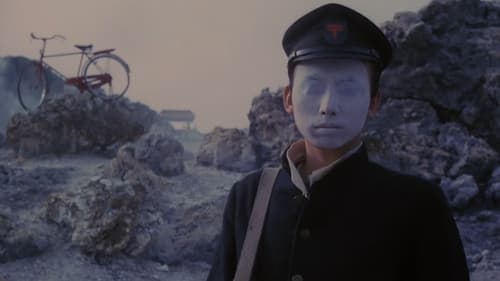
Producer
Это откровенная медитация на тему детства и взросления, диалог взрослого режиссера с самим собой в том возрасте, когда ему было 15 лет.

Writer
Это откровенная медитация на тему детства и взросления, диалог взрослого режиссера с самим собой в том возрасте, когда ему было 15 лет.

Director
Это откровенная медитация на тему детства и взросления, диалог взрослого режиссера с самим собой в том возрасте, когда ему было 15 лет.

Writer
A dreamlike portrayal of a hangover after a decadent party.

Director
A dreamlike portrayal of a hangover after a decadent party.

Director
Three showgirls playfully mock the audience for attending a projection of an art film.

Screenplay
Originally made for the 100 Feet Film Festival hosted by Image Forum. However, to test the limits, Terayama Shūji willfully made use of 3 projectors to project 300 feet of film at the same time.

Director
Originally made for the 100 Feet Film Festival hosted by Image Forum. However, to test the limits, Terayama Shūji willfully made use of 3 projectors to project 300 feet of film at the same time.

Himself
Shûji Terayama's commercial for the Japanese Racing Association.

Director
Shûji Terayama's commercial for the Japanese Racing Association.
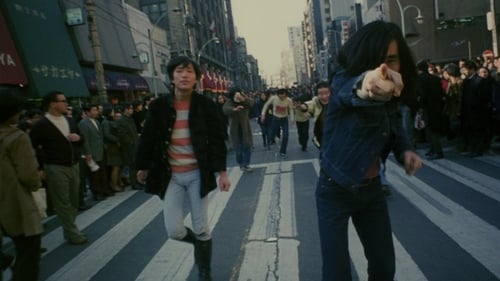
Producer
История японского подростка из неблагополучной семьи. Его бабушка страдает старческим маразмом, сестра любит своего кролика на грани сексуальной одержимости, а отец отводит юношу к проститутке, чтобы тот стал мужчиной. Пережив множество тяжелых жизненных ситуаций юноша разочаровывается в людях и собственной жизни. От ярости он сбегает из дома и оказывается на улице. Главная история фильма разбивается короткими рассказами различных людей, которые помогают сложить цельную картину явлений в обществе Японии в 60-70-е годы.

Writer
История японского подростка из неблагополучной семьи. Его бабушка страдает старческим маразмом, сестра любит своего кролика на грани сексуальной одержимости, а отец отводит юношу к проститутке, чтобы тот стал мужчиной. Пережив множество тяжелых жизненных ситуаций юноша разочаровывается в людях и собственной жизни. От ярости он сбегает из дома и оказывается на улице. Главная история фильма разбивается короткими рассказами различных людей, которые помогают сложить цельную картину явлений в обществе Японии в 60-70-е годы.

Director
История японского подростка из неблагополучной семьи. Его бабушка страдает старческим маразмом, сестра любит своего кролика на грани сексуальной одержимости, а отец отводит юношу к проститутке, чтобы тот стал мужчиной. Пережив множество тяжелых жизненных ситуаций юноша разочаровывается в людях и собственной жизни. От ярости он сбегает из дома и оказывается на улице. Главная история фильма разбивается короткими рассказами различных людей, которые помогают сложить цельную картину явлений в обществе Японии в 60-70-е годы.

Writer
Paper-Scissor-Rock wars draws an episode where the two generals portray the Second World War, mostly through the rock-scissors-bag, but also by some absurd torture techniques that bring to mind some sort of Japanese artificial 70s jack ass. To the sound of classical music, birds chirping and Nazi incendiary speeches travels generals, ever contestant in the seemingly meaningless game around at an abandoned industrial area.

Director
Paper-Scissor-Rock wars draws an episode where the two generals portray the Second World War, mostly through the rock-scissors-bag, but also by some absurd torture techniques that bring to mind some sort of Japanese artificial 70s jack ass. To the sound of classical music, birds chirping and Nazi incendiary speeches travels generals, ever contestant in the seemingly meaningless game around at an abandoned industrial area.
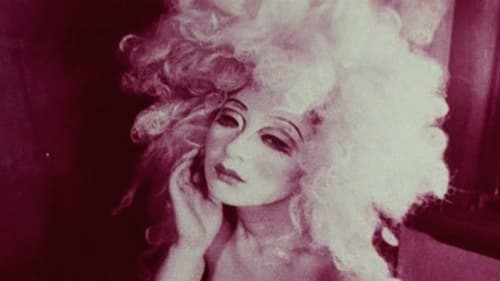
Editor
In a Japanese colony, children overthrow their parental guardians and attempt to form a new society. Their plan spirals out of control and they are soon lost in a web of sexual deviation and violence.

Music
In a Japanese colony, children overthrow their parental guardians and attempt to form a new society. Their plan spirals out of control and they are soon lost in a web of sexual deviation and violence.

Writer
In a Japanese colony, children overthrow their parental guardians and attempt to form a new society. Their plan spirals out of control and they are soon lost in a web of sexual deviation and violence.

Director
In a Japanese colony, children overthrow their parental guardians and attempt to form a new society. Their plan spirals out of control and they are soon lost in a web of sexual deviation and violence.

Writer
Япония, Эдо времён эры Тэмпо. В 1834 г. энергичный представитель дома Мидзуно - Тадакуни занял пост члена Совета старейшин (родзю). А в 1841 году он получает почти неограниченные полномочия правителя при новом сёгуне Иэёси, активно проводя реформирование экономики страны, заодно стараясь укрепить моральные основы общества. Жёсткие и непопулярные меры - закрытие театров, запрет азартных игр и публичных домов, ограничение на роскошь - приводят к недовольству и росту числа людей, оставшихся без заработка. На фоне этих событий происходит переплетение судеб нескольких человек, оказывающихся в силу закона маргиналами. Колоритные и неоднозначные персонажи объединяются по различным причинам в протесте против социальных запретов. Обречённый бунт, превращающийся в фарс, по-настоящему трагичен.

Writer
Нанами и Сюн — несовершеннолетние, их непреодолимо влечёт тайна любви. Но как насладиться этой тайной, не испачкавшись? Грязь окружает их повсюду: обман, насилие, распутство. В столице так много соблазнов. К тому же, над каждым довлеет прошлое.

Poem
Documentary about the relationships between mothers and their children.

Imura
Easily bored, but still innocent and naive countryside girl (Mako Midori) discovers partying in Tokyo is a ton of fun. Yakuza-to-be (Ichiro Araki) is an acquaintance who tries to rape her, and the typically bland but very-good-here (Hayato Tani) the first boyfriend. Director Yasuo Furuhata (his first picture) lets his camera roll in trendy clubs amongst partying youngsters in a way that could've been out of 60s England or a Nikkatsu film if it wasn't shadowed by dated 60s Toei conservatism.The resulting film is a bit confused, either a rebellious youth tale chained by moral concerns, or something conceived as a morality tale trying to break free from its chains.

Screenplay
Портовый город Йокогама. Сабуро Минаками потерял родителей во время войны, он ещё подросток, но должен выживать один в этом мире. Его наставником становится господин Китани, которого он называет старшим братом. Однако Китани заставляет его заниматься грязными делами. Он взимает мзду с временных рабочих в порту, которые отчаянно пытаются прокормить свои семьи. Рабочие не намерены это терпеть, они хотят организовать профсоюз, чтобы защитить свои права.

Screenplay
Finished shooting in 1962, the movie’s cast was almost the same as its crew. With a bunch of experimental symbols such as skinny human body, clock and goat flow from one scene to another, the film explores the question of whether a man is a prisoner of time.

Director
Finished shooting in 1962, the movie’s cast was almost the same as its crew. With a bunch of experimental symbols such as skinny human body, clock and goat flow from one scene to another, the film explores the question of whether a man is a prisoner of time.

Screenplay
Киёси Исибаси решает сосредоточиться на работе журналиста, поэтому рвет все прежние связи и решает не связывать себя любовными узами. Но в этот момент он встречает скромную официантку Тиэ, и понимает, что должен жениться на ней. К сожалению, жизнь Тиэ состоит из постоянной борьбы с бедностью, так как её отец пьёт и играет в тотализатор. Её спасением может стать брак с сыном богача Кимура, но она его не любит. Ситуация ещё сильнее запутывается, когда отец девушки получает травму.

Writer
Директор строительной компании Мидзута решил избавиться от назойливой журналистки, которая пытается разоблачить его преступную деятельность, и нанял банду убийц. Среди киллеров есть девушка Нагиса - дочь охотника с Хоккайдо. Она обожает животных и везде ходит с овечкой, которую привезла с собой из родной деревни. Есть среди киллеров и врач, и поэт, и студент-футболист. Убийца по кличке Сентиментальный не расстается с фотоальбомом, в котором бережно хранит фотографии всех своих жертв. Чтобы определить самого искусного стрелка, убийцы приходят на скачки - стрелять по головному убору жокея, который финиширует первым. Неожиданно кепку жокея сбивает молодой человек по имени Харухико. Он тоже оказывается профессиональным киллером, и его принимают в банду. Первое задание Харухико – убить ту самую журналистку.

Screenplay
Gang of robbers quarrel about the loot, but when one of them gets killed, his younger brother seeks them out to ice them one by one.

Screenplay
Такуя Симодзё мечтает о карьере революционера. Стены его комнаты в общежитии обклеены портретами Фиделя Кастро, Уинстона Черчилля, Адольфа Гитлера, генерала Тодзё Хидэки. Такуя как будто не замечает различий между своими кумирами. Его привлекает сам образ «вождя». Действие фильма происходит в разгар студенческой борьбы против продления договора о военном союзе между США и Японией, так называемого Договора безопасности (1960). Такуя состоит в студенческом Комитете Протестующих, но к своим обязанностям относится безответственно, а о товарищах распространяет слухи, будто они троцкисты. Свободное время Такуя проводит в барах, развлекаясь с девушками. Жизнь молодого человека кардинально меняется, когда в руки ему попадает взрывчатка.























